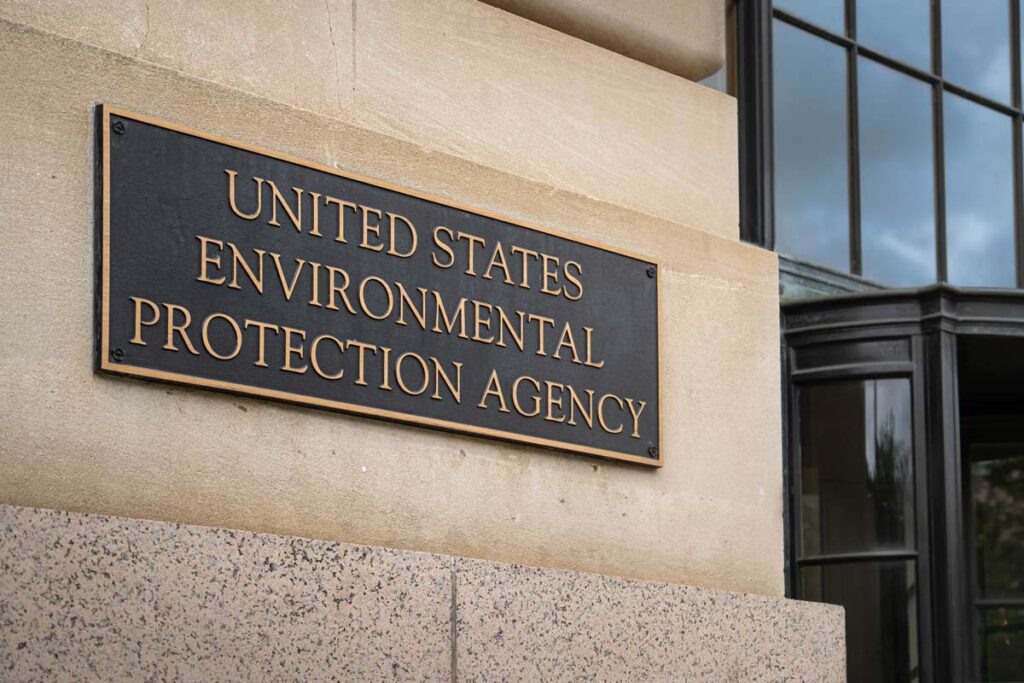
EPA trichloroethylene ban overview:
- Who: The U.S. Environmental Protection Agency (EPA) has proposed to ban trichloroethylene and add mandatory reporting restrictions for per- and polyfluorinated substances (PFAS).
- Why: The EPA believes that trichloroethylene poses a grave risk to human health and that tracking of PFAS should be more robust.
- Where: The EPA sent the proposed rules from its Washington, D.C., office.
The U.S. Environmental Protection Agency (EPA) has proposed to ban trichloroethylene (TCE) and add mandatory reporting restrictions for per- and polyfluorinated substances (PFAS) due to the risks that both pose to humans and the environment.
The EPA proposed rules would eliminate trichloroethylene from its uses, as a solvent in industrial, commercial and consumer applications including for hydrofluorocarbon production, vapor and aerosol degreasing, and in lubricants, greases, adhesives and sealants, according to the EPA.
Trichloroethylene is a carcinogen that creates non-cancer effects such as liver toxicity, kidney toxicity, neurotoxicity, immunotoxicity, reproductive toxicity and developmental toxicity as well as causing liver and kidney cancer and non-Hodgkin lymphoma from chronic inhalation and skin exposure.
“To address the identified unreasonable risk, EPA is proposing to: prohibit all manufacture (including import), processing, and distribution in commerce of TCE and industrial and commercial use of TCE for all uses, with longer compliance timeframes and workplace controls for certain processing and industrial and commercial uses (including proposed phaseouts and time-limited exemptions); prohibit the disposal of TCE to industrial pre-treatment, industrial treatment, or publicly owned treatment works, with a time-limited exemption for cleanup projects; and establish recordkeeping and downstream notification requirements,” the new EPA rule says.
EPA to close short-form loophole of reporting for companies that produce, use PFAS
PFAS is proposed to be added to the EPA’s list of chemicals of special concern on a permanent basis, meaning it would increase the reporting requirements for companies who produce and use products containing PFAS and eliminate an option to use a short form for such documentation.
“This will help ensure that purchasers of mixtures and trade name products containing such chemicals are informed of their presence in mixtures and products they purchase to better inform any TRI reporting obligations,” the EPA said in the proposed rule.
On Oct. 6, the EPA finalized another hydrocarbon restriction, banning hydrofluorocarbons in air conditioning, heating and refrigeration products if more environmentally friendly alternatives are available.
Do you think the EPA is doing enough to combat climate change? Let us know in the comments.
Don’t Miss Out!
Check out our list of Class Action Lawsuits and Class Action Settlements you may qualify to join!
Read About More Class Action Lawsuits & Class Action Settlements:
- Class actions allege Connecticut utilities sold water containing PFAS
- Coca-Cola seeks dismissal of PFAS juice class action
- Consumers, politicians, agencies seek to address environmental issues via lawsuits, other means
- Chemours, DuPont class action claims companies discharged wastewater containing forever chemicals















One thought on EPA proposes trichloroethylene ban, fixes PFAS loophole
Yes,
Thanks please add me